China in IOR: ‘peaceful rise’ no more
China has expanded its presence in the Indian Ocean Region. President Xi Jinping has abandoned Deng Xiaoping’s conciliatory posture for an aggressive, money-fuelled search for super power status
 Courtesy: Western Naval Command
Courtesy: Western Naval Command
China has expanded its presence in the Indian Ocean Region. President Xi Jinping has abandoned Deng Xiaoping’s conciliatory posture for an aggressive, money-fuelled search for super power status
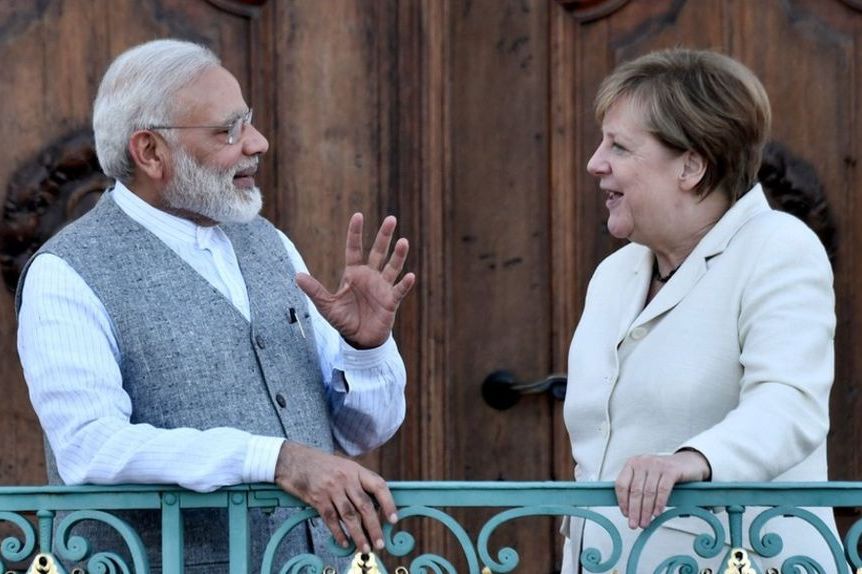 Courtesy: BBC
Courtesy: BBC
Germany and India have revealed a dual priority for Africa: creating opportunities for prosperity and promoting stability. For both, these are uncharted waters and represents a shift in the locus of global dynamism, away from an Anglo-Saxon world order to a more diverse yet potentially fissiparous one
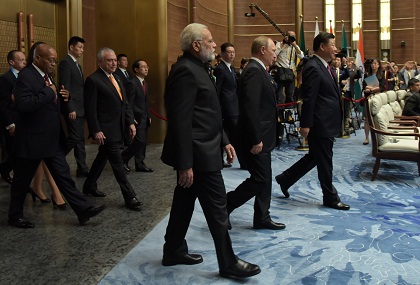 Courtesy: MEA/ Flickr
Courtesy: MEA/ Flickr
The ninth BRICS summit represented the victory of pragmatism over narrow nationalistic impulses. All BRICS members are likely to craft the grouping’s future script as it enters its second decade, but more crucially, the Big Three will have to show a large dose of statesmanship
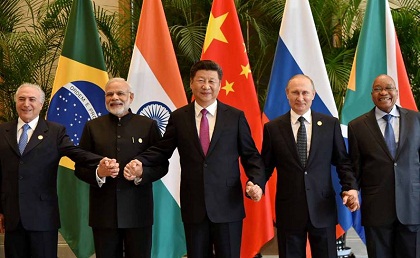 Courtesy: Narendra Modi/ Flickr
Courtesy: Narendra Modi/ Flickr
BRICS, which has always been committed to enhancing solidarity, is now entering its second decade – even as tensions between its two most consequential members remain unresolved and member states and other emerging markets are set to serve as “the main engine” of global growth
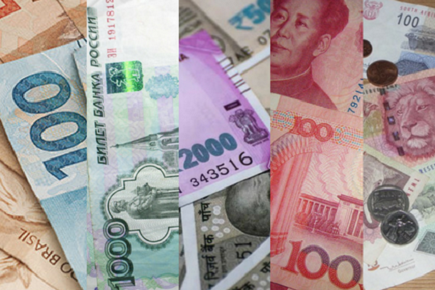 Courtesy: Gateway House
Courtesy: Gateway House
The multi-polar world that BRICS nations seek is not a reality yet and the differences between them do exist. But the BRICS summit in September offers leaders an opportunity to examine a few important financial issues before they can dictate the global agenda
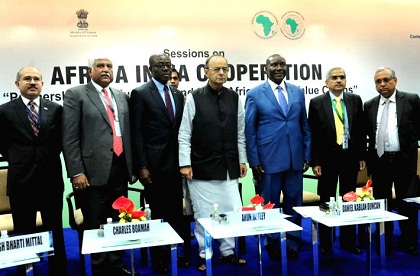 Courtesy: Prokerala
Courtesy: Prokerala
India seems to have departed from catch-all, overarching initiatives in Africa to rather more nuanced ways of making its contribution felt, such as helping fashion G20’s ‘Compact with Africa’. Many countries are also keen to avail of Indian companies’ knowledge and experience of investing in Africa and the presence of the large diaspora—and such trilateral cooperation is to be welcomed
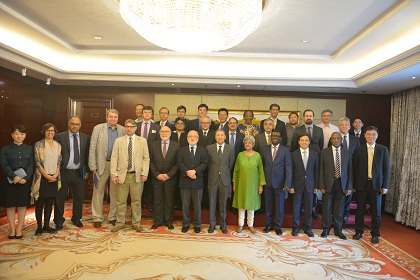 Courtesy: Gateway House
Courtesy: Gateway House
A conference of the BRICS 2017 Think Tank Forum, held in Beijing recently, showed that the grouping had progressed in influencing global governance despite some persistent intra-member differences
 Courtesy: Igor Peraza
Courtesy: Igor Peraza
Speakers at the ‘1st BRICS Think Tank Forum on Pragmatic Cooperation’, held in Shanghai last month, discussed ways to tackle new challenges as globalisation moves into the next phase where the BRICS countries will take the lead

The past decade has witnessed an evolution of India-Africa relations especially since the implementation of Modi's Act East policy. There is also a growing realisation of the strategic and geopolitical value of the Indian Ocean region. This speech highlights the policies needed to strengthen India-Kenya relations and tap the wealth of resources in this Blue Economy.
 Courtesy: Gateway House
Courtesy: Gateway House
Trends in technology, geopolitics and geoeconomics have dramatically transformed the global energy scenario in the last two years. This means favourable conditions for import-dependent India, which must use the opportunities available to reduce its vulnerability to high energy prices. The jump in oil prices past the $60 mark suggests that India must act with alacrity. India’s Energy Footprint Map offers a profile of India’s global trade and investment in energy, and indicates what India can do to access cheap and reliable supplies